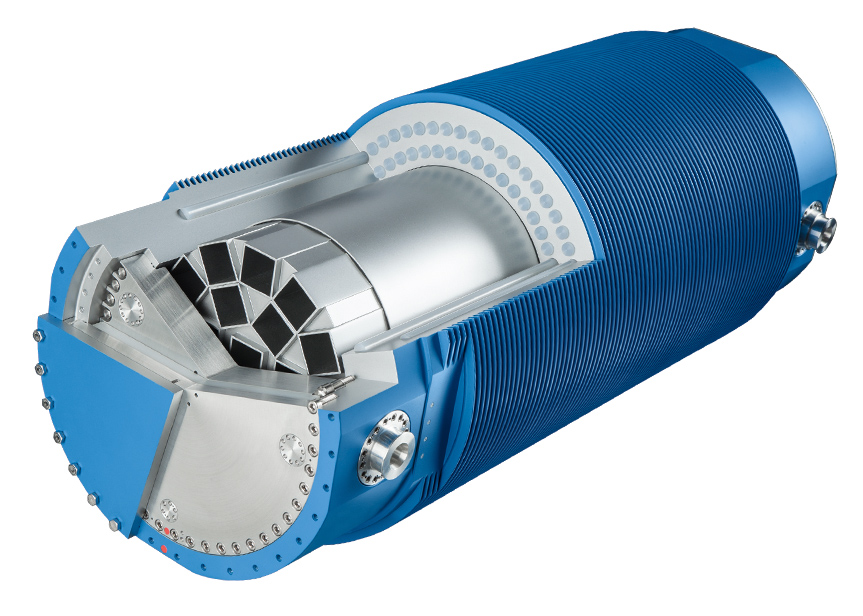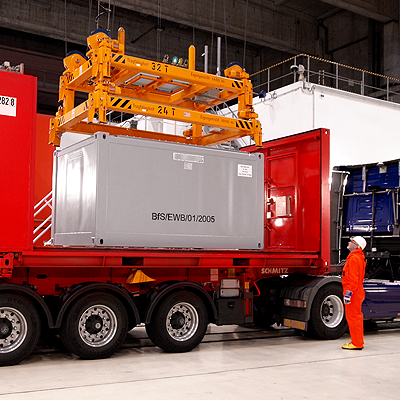The interim storage of the spent fuel elements takes place in specially-developed CASTOR® safety casks, which are designed in such a way that they meet all safety protection targets. Extensive tests have shown that the CASTOR® casks retain their contents safely, even in the event of serious accidents and impacts. The sealing of the casks is also permanently monitored during the entire interim storage period, so no radioactive substances can be released into the environment.
The CASTOR® cask
Casks such as the CASTOR® type from the German company GNS are used in many countries all over the world for the transport and interim storage of spent fuel elements and waste from reprocessing.
The technical principle of transport and storage casks has proven itself over decades: The radiation emitted by the radioactive contents is safely shielded by the container. The casks have two lids and this double lid system guarantees the safe confinement of the radioactive content. The seals of the casks are also permanently monitored. The fuel element support baskets in the interior of the casks ensure heat dissipation and – in particular – the subcriticality of the fissile material still contained in the irradiated fuel. The casks are designed to withstand even extreme external influences, such as transport accidents, fires or an aircraft crash. They comply fully with the strict requirements of the internationally-recognised dangerous goods criteria of the International Atomic Energy Agency (IAEA).
Casks for low and intermediate-level radioactive waste
Prior to interim storage, low and intermediate-level radioactive waste is ‘conditioned’, meaning it is specially treated, processed and packaged. Depending on the consistency, size and nature of the waste, various conditioning processes are used: Liquid waste is evaporated or cemented, whereas solid waste is crushed, dried, incinerated, melted, compacted or cemented. Once the waste has been processed, for example, into briquettes or concentrates, it is packed in approved and standardised casks.
There are three basic types of casks for this:
- Cylindrical concrete casks
- Cylindrical cast iron casks
- Standard casks
All these casks have successfully completed an extensive test programme at the Federal Institute for Materials Research and Testing (BAM) and have been approved in accordance with the regulations for transport and interim storage. This guarantees that the legal requirements of the Radiation Protection Ordinance (German version only) are reliably complied with.




